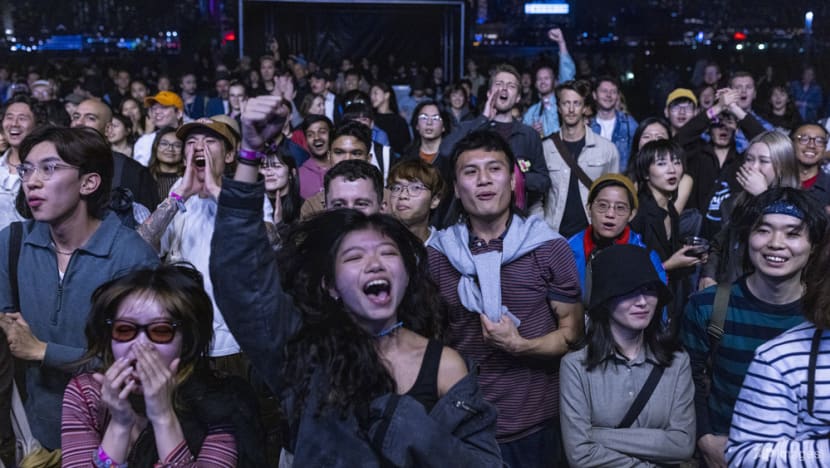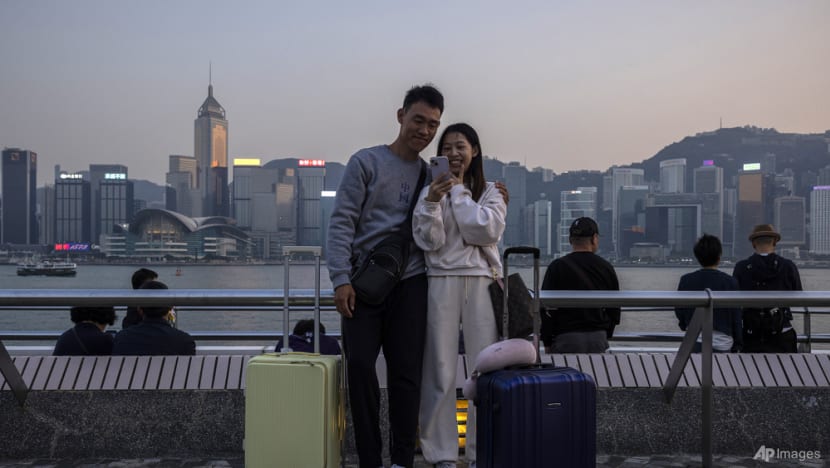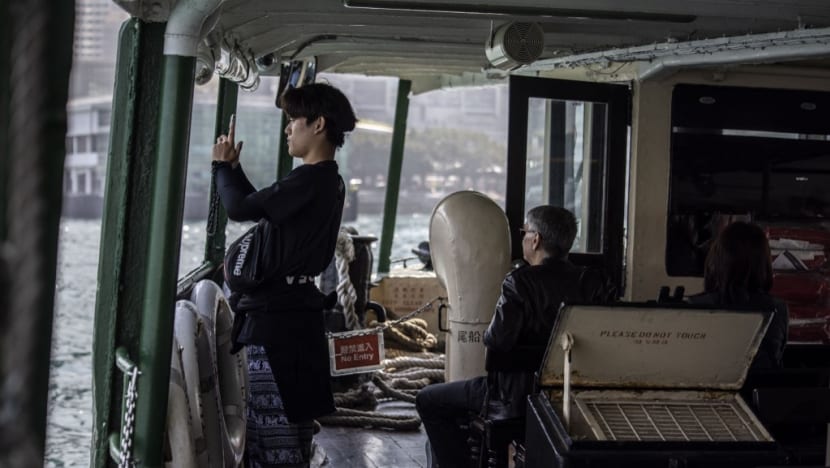Commentary: Even as Hong Kong embraces maskless normalcy, the city has changed
Hong Kong urgently needs to secure new income sources, so creating a welcoming post-pandemic image for businesses and tourists is crucial, says Jacky Leung.

Concertgoers attend the Clockenflap music festival in Hong Kong on Mar 3, 2023. (AP Photo/Louise Delmotte)
LONDON: Hong Kongers can finally choose whether to wear a mask or not in public areas after three years of the COVID-19 pandemic. The mask mandate has lasted more than 900 days, one of the longest worldwide, and ended on Wednesday (Mar 1) with the government suggesting that the pandemic is under control.
This marks another sharp U-turn of COVID-19 measures from the Hong Kong government, as the mask mandate was previously extended on Feb 22 for an extra 14 days, and officials then stressed it was needed considering the capacity of the medical system. They also said the mask mandate - first imposed in July 2020 - would only be reviewed after winter.


The abrupt changes in COVID-19 policy in the past few months have left many locals with the impression that the moves are Beijing-oriented and politically driven. Still, the end of the mask mandate is essential for Hong Kong in terms of its economic recovery and linking up with the world again.
HONG KONGERS EMBRACE THE CHOICE OF GOING MASKLESS
The Hong Kong government announced its budget last week. The numbers were not pretty: The city's treasury shrunk by HK$140 billion (US$17.8 billion) in the financial year of 2022 to 2023, more than double the HK$56 billion it first estimated. Though Hong Kong is still rich and has hundreds of billions in reserves, it is the fourth consecutive annual budget deficit, and the government predicts another deficit in the next financial year.
The government had hoped that land revenue could provide substantial income, but the shockingly low price of residential and commercial land tenders this season may have proven it too optimistic. Therefore, the city urgently needs to secure new income sources.
Creating a welcoming image for investors, businesses and tourists is now crucial, hence the Hello Hong Kong PR campaign. If masks are still required everywhere in the city, it will be viewed as awkward by foreign nationals and will no doubt hurt the effectiveness of the promotion.
On the other hand, local citizens also generally favour the policy change. Undeniably, many people were cautious and kept their masks on for the first few days after the mandate was dropped. But those who chose to go maskless have not been discriminated against either. Most people embrace the fact that they can choose the lifestyle they want instead of being forced by law.
Besides, almost everyone vividly remembers how difficult it was to get face masks at the beginning of the pandemic. Even if one could afford to pay several hundred Hong Kong dollars for a box of masks, queuing up for hours was still necessary.
That was why celebration erupted online over the easing of mask rules. Many spoke about their remaining stockpiles of masks not with remorse but joy. Netizens also reminded each other to wear make-up and shave for work as their entire faces were allowed to be shown again.
RENEWED DEBATE ABOUT PROHIBITIONS ON FACE COVERING
The losers of the policy change are clearly mask factory owners who invested in building production lines. But, locals also discussed the reputational damage to Hong Kong officials, not only because of the sudden change in rules, but because it also reminded people of the controversial Prohibition on Face Covering Regulation.
The Regulation bans the covering one’s face at public demonstrations. It was implemented in 2019 at the height of Hong Kong’s anti-extradition Bill movement to discourage people from joining the protests. When COVID-19 struck three months afterwards, the introduction of the mask mandate sparked discussion about whether the two regulations, which seemed contradictory, could co-exist.
The discussion died down when society was busy fighting against the virus, but has been stirred up again with the latest mask-wearing policy change. When Chief Executive John Lee announced the end of the mask mandate, he was also questioned about the future of the Prohibition on Face Covering Regulation.
The government emphasised that the Regulation would not affect daily life and would only be used in specific assemblies, meetings or processions.
However, the definition of lawful and unlawful assembly is questioned by Hong Kong’s civil society, which used to be vibrant prior to the passing of the national security law in June 2020. Some netizens worry that wearing masks collectively - not for political reasons but for public health - could still be regarded as unlawful assembly.
Some may argue this kind of thinking is too extreme, but the policy change did remind Hong Kongers that the city is no longer the same, even as it tries to emulate the rest of the world in adopting post-COVID normalcy. Will foreign investors and travellers sense the change in the air after they arrive? The answer is not clear yet, but it will significantly affect the city's image and future.
Jacky Leung is an award-winning journalist who has worked in multiple Hong Kong TV and radio news stations. He is currently based in London.


















